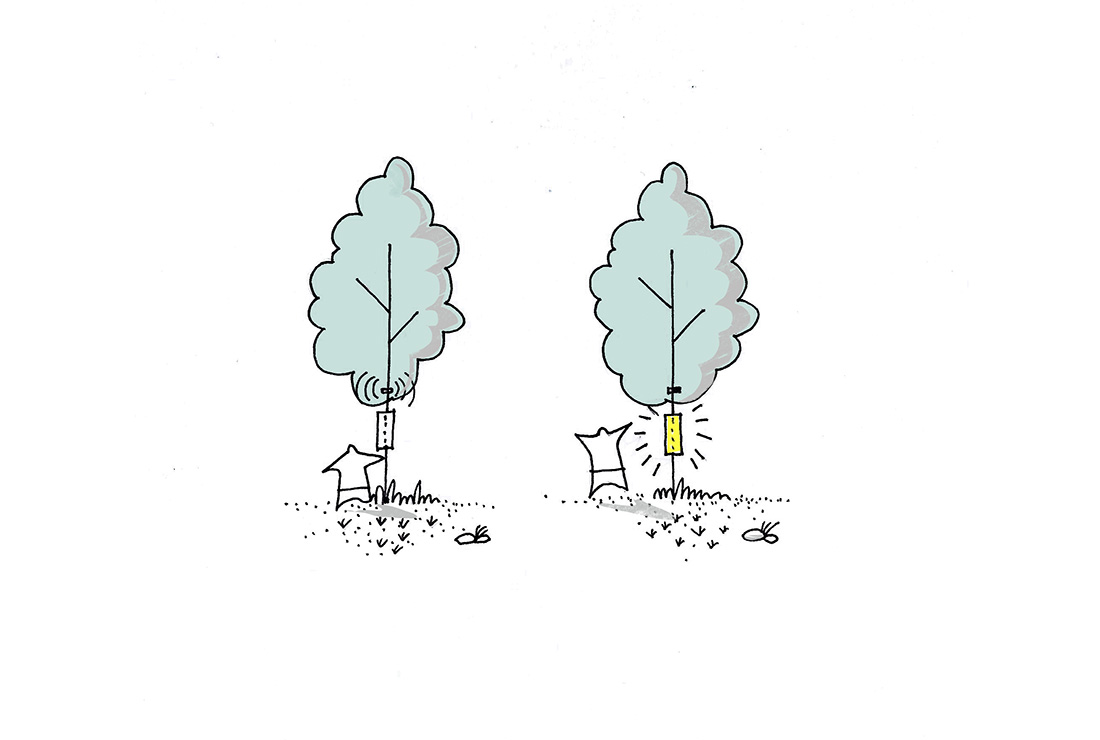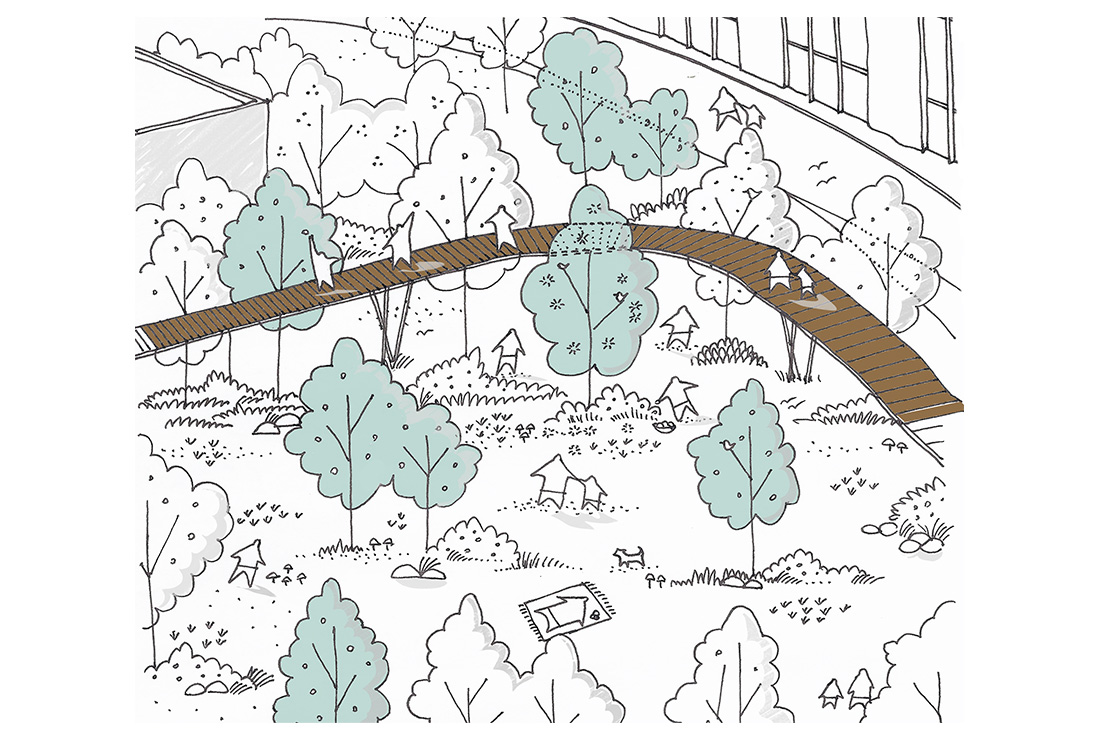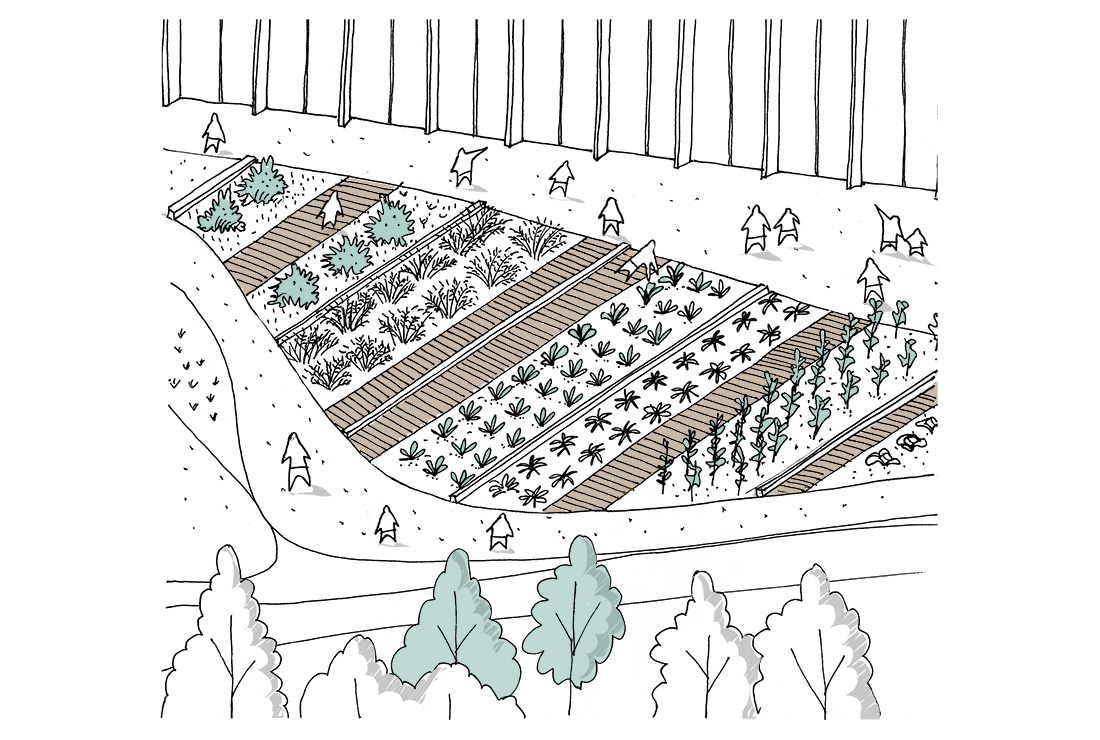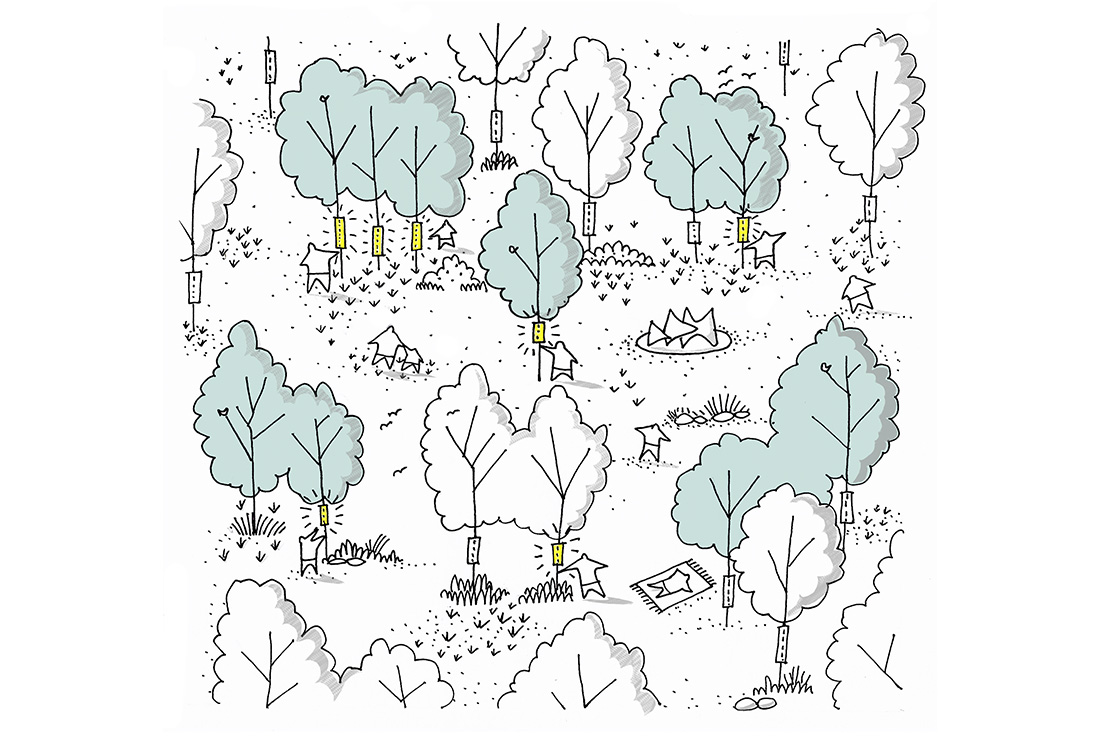Here is Key Topics
Design and science face an unprecedented emergency: the accelerating degradation of the environment, whose preservation is our responsibility. Under such shifting constraints, designers and scientist are beginning to go beyond emulation to harness process observed in the living world, where systems achieve perfect economies of energy and materials. Pnat uses biology-inspired approaches to design and fabrication. Pnat provides research, consultancy services, educational activities and develops design solutions to make more sustainable our way of living. Our Key Topics are Urban Farming, Air Quality, Urban Jungle, Green Remediation and Urban Forest management

Urban Farming
Farming has to deal with the lack of land, energy and water access. Production of food needs to increase its efficiency to fulfill a growing demand, while new supply models are shortening distribution lines and reducing local vulnerabilities. Urban Agriculture can increase access to fresh and healthy food, reducing food miles and contributing to increase food security. This extraordinary tool will play more and more a strategic role in the future development of our cities. How to fully exploit Urban Farming potentiality to produce positive social and economic impact on urban communities? Pnat provides facilities and advisory services to public and private institutions in the design, planning, implementation and operation of urban agriculture projects.
Installation

Air Quality
Air pollution is the main issue of our cities. From industrial system to everyday life, every activity is a pollution source. According to the European Union, “Air pollution represents the most serious environmental health problem in Europe, determining a rate of mortality 10 times higher to that of road accidents”. Atmospheric pollution is not only concerning external spaces: indeed, air inside buildings (indoor) is generally more polluted than external one. Plants capture air pollutant and incorporate them into their biomass. Their leaves and roots work as high efficient filters, with an indefinite duration. Based on the results of laboratory experiments, Pnat uses plant technologies to innovate ventilation system, promoting an approach based on air recycling and botanical filtration, and ongoing monitoring of environmental pollutant concentrations.
Installation

Urban Jungle
Cities are the ideal set for human development: to make urban renewal with plants is the best strategy to support our prosperity. Plants play a key role in improving the quality of urban space, climate and environment. We need to recover a cooperative and symbiotic relationship with nature, including plants and trees in our cities. Cities must be invaded by trees, because a city with few trees is deeply unbalanced. Potentialities of including plants in urban life, in health care systems, in learning structures, in (self)production processes, are by a long shot more than we can imagine. In the cities of the future, the cohabitation between plants and people will be a main theme.
Installation

Green Remediation
Industrial activities, hazardous waste production, transport system are among the main causes of environmental pollution. Plants’ are able to concentrate and degrade pollutants from air, water and soil. That capacity makes them great allies for decontamination. Phyto-depurative tecnologies use plants’ abilities to clean up polluted environments. Inspired by the latest findings in the field and exploring phyto-remediation’s possibilities, Pnat develops innovative solutions on various possibilities of phyto-remediation: from in-situ disposal of landfill leachate to recovery and regeneration of contaminated lands
Installation

Urban Forest Management
The Smart City improve the quality of life of citizens by increasing information and communication in a more efficient, inclusive and sustainable way. Urban areas behave a lot like complex natural systems, such as forests, where plants create a real network and swap among them information and signals, for example about potential pathogens and aggressors. It is a fact that trees have a key role in cities’ liveability, but so far it has been hard to evaluate the assets they produce. Pnat develops tools to learn from plants and to receive information about our cities in order to better our urban environment. In our vision, each tree works as a node of a network that provide public administrations with solid and reliable data that can be used to guide green policies and to draw up green benefits assessments.


